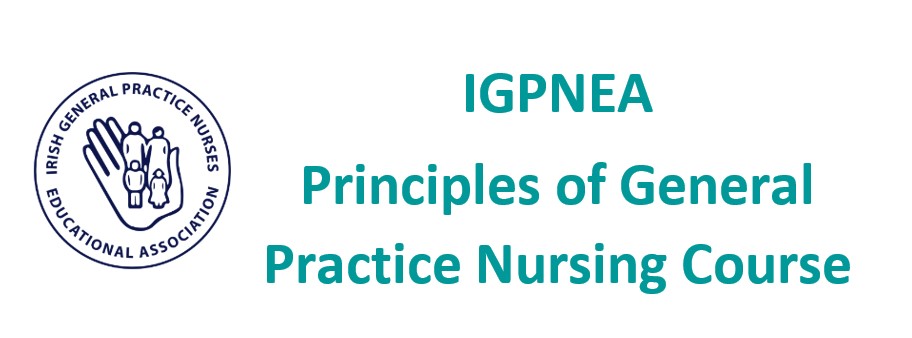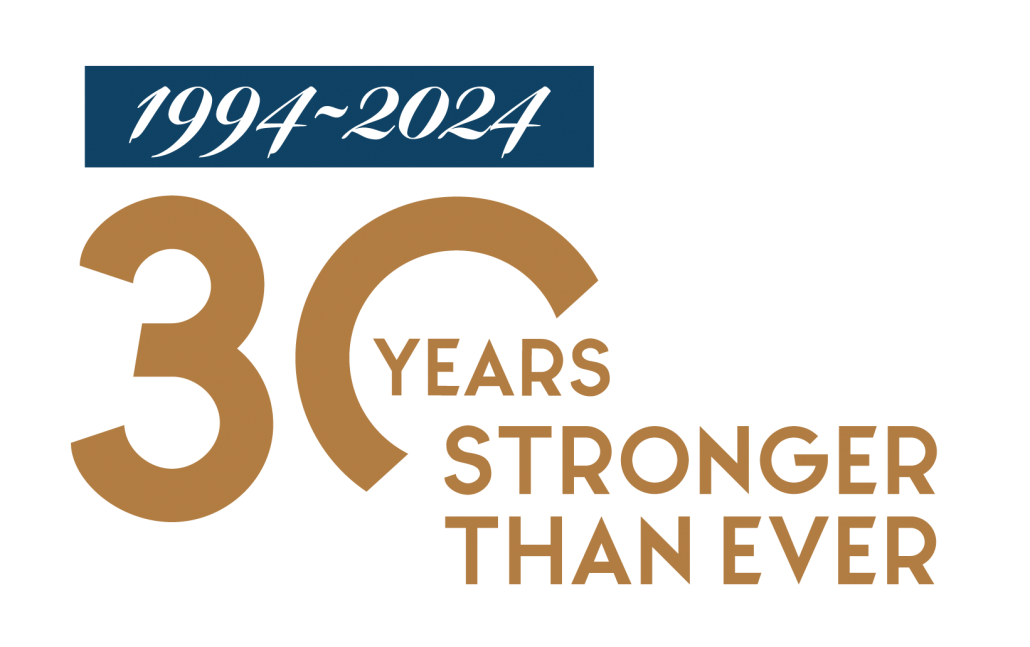
IGPNEA launched its Principles of General Practice Nursing course in January 2023.
2023 was a very successful 1st year for our Principles of General Practice Nursing Course.
The NEC officers & Education Committee are delighted to announce that the course will run twice in 2024 – in January & September.
The course is aimed at those nurses in the early stages of their general practice careers and those nurses considering joining general practice from another setting. It gives an understanding of the role carried out by general practice nurses (GPNs); the wide variety of skills required to work safely; information on how to link to evidence-based educational resources for further learning and the opportunity for further career development within the general practice setting.
All participants will have access to a recording of each module (except Module 6) following each live meeting.
The course content has been strategically planned to orientate the participant to practice safely in their new working environment. The therapeutic relationship in general practice differs from that of the acute healthcare setting. Care interventions span all age groups, throughout the life course and across all fields of nursing. The course will afford the participant the opportunity to consolidate his/her prior learning with the knowledge and skills to manage and deliver quality care in a range of issues in the primary care environment, within the realms of wellness and prevention of chronic disease and multi morbidity.
Optimal support and direction will be provided for those who are taking the course while undertaking other significant work and family commitments. The course values peer to peer learning and utilises the experience of those more established GPNs to give practical advice on working in real-life settings, integrating theory and practice, which optimises patient care and practitioner development.
The course shall consist of 12 modules, delivered virtually via zoom, over a 6-week period followed by a face-to-face practical skills day. NMBI Category 1 approval has been received for each module.
There will be a limit of 100 participants per course. All of the module tutors are experienced in working in general practice and will bring a unique insight into the practicalities of working in this exciting environment.
Course Fees
September/October Intake:
Course Dates:
Week 1: Tuesday 24th September 2024, 2.30pm-5.30pm
Week 1: Thursday 26th September 2024, 2.30pm-5.30pm
Week 2: Tuesday 1st October January 2024, 2.30pm-5.30pm
Week 2: Thursday 3rd October 2024, 2.30pm-5.30pm
Week 3: Tuesday 8th October 2024, 2.30pm-5.30pm
Week 3: Thursday 10th October 2024, 2.30pm-5.30pm
Week 4: Tuesday 15th October 2024, 2.30pm-5.30pm
Week 4: Thursday 17th October 2024, 2.30pm-5.30pm
Week 5: Tuesday 22nd October 2024, 2.30pm-5.30pm
Week 5: Thursday 24th October 2024, 2.30pm-5.30pm
Week 6: Tuesday 29th October 2024, 2.30pm-5.30pm
Week 6: Thursday 31st October 2024, 2.30pm-5.30pm
Skills Day: Saturday 2nd November OR Saturday 9th November, 10am-4pm, Midlands Park Hotel, Portlaoise
New: Recordings Included
Course Modules
-
Module 1: Scope of Practice Issues
-
Module 2: Asthma
-
Module 3: Obesity, Inflammatory conditions, End of Life Care
-
Module 4: Immunisation
-
Module 5: Cardiovascular
-
Module 6: Wound Care, Dermatology
-
Module 7: Sexual Health
-
Module 8: COPD, Smoking Cessation
-
Module 9: Women’s Health
-
Module 10: Men’s Health, Adult Immunisation, Cancer Referral Pathways
-
Module 11: Mental Health
-
Module 12: Diabetes
-
Skills Day: Blood pressure, ECG, Respiratory, Immunisation, Dressings, Protocols
Week One
Module One
Scope of practice issues
- Therapeutic relationships in general practice, different from acute care setting
- Spans all age groups, throughout the life course, across all fields of nursing
- Contract / indemnity
- NMBI – division on register / minimum RGN
- PPPGs – over-arching work in general practice setting
- PCRS – the business end of general practice
- Social media policy / HR issues
- Slaintecare
- IGPNEA membership
- Phlebotomy and sample requirements, request forms
- What we can’t undertake if no GP on site
Module Two
Cardiovascular
- Hypertension – measurement / treatments / prevention
- B/P monitoring – mercury/ aneroid/ digital/ ambulatory advantages and disadvantages
- Atrial fibrillation / Heart Failure /Angina / CVA / CVD/ MI / Atherosclerosis
- ECG – devices / technique
- Chronic disease management – CDM / OCF / Preventative programme
Week Two
Module Three
Obesity
- Definition and pathophysiology
- Starting the conversation
- Stigma
- Behavioural interventions
- Pharmacotherapy
Inflammatory conditions
- Rheumatoid arthritis
- Osteoarthritis
- Arteritis
- Definitions and pathophysiology
- Treatments and monitoring
End of Life Care
- Enhance quality of life and wherever possible to positively influence the course of illness
Module Four
Immunisation
- PCIP – Seasonal vaccines / occupational health vaccines/ travel vaccines
- National Coldchain ordering process and out of date returns
- Consent issues – parents/guardians/foster family
- Immunisation administration – medication interactions / schedules / catch up
- Maintaining immunisation records / completing data returns
- Fridge – temp monitoring / coldchain breach / storage issues
Week Three
Module Five
Asthma
- Definition and diagnosis / pathophysiology
- Treatment guidelines – GINA
- Under 6’s and adults
- Inhalers and techniques
- Acute exacerbations
- Chronic disease management (CDM Programme)
Module Six
Sexual health
- History taking
- Men and women affected
- Fertility
- Contraception – methods /contraindications / emergency
- Free contraception scheme
- Crisis pregnancy – referral pathway
- STI’s – identification / screening tests /blood borne v contact lesions
Week Four
Module Seven
COPD
- Definition and diagnosis / pathophysiology/ Spirometry
- Treatment guidelines – GOLD
- Inhalers and technique
- Chronic disease management (CDM Programme)
- Pulmonary HUB referral pathway
Smoking Cessation
- Motivational interviewing / MECC
- Support services
- Smoking cessation aids
Module Eight
Wound care
- Types of wounds – bites (animal and human)/ burns / lacerations / skin tears / traumatic
- Assessment – immediate care / early interventions / Tetanus booster??
- Dressings – different types and when to use
- Wound healing – stages / processes
- Infections – recognition / treatment
- Sterilisation of reusable instruments v single use instruments HIQA guidelines
Dermatology
- Skin conditions – eczema / acne / psoriasis / genital
- Assessment and Treatments
- Allergic reactions
Week Five
Module Nine
Women’s Health
- National screening programmes – cervical / breast / bowel
- Vaginal ring pessary – changes
- Menstrual issues – premenstrual disorders / menorrhagia / amenorrhoea
- Menopause – HRT / breast cancer / Osteoporosis
- Endometriosis / Pelvic inflammatory disease /Polycystic ovary disease
- Fertility – Contraception* / Preconceptual care / antenatal care / postnatal care
- Vaginal discharge – abnormal / physiological
- Infections / Incontinence / Vaginal organ prolapse
- Vulval problems
Module Ten
Men’s Health
- Cancer referral pathways -bowel /breast / prostate
- Urinary infections
- Benign prostatic hyperplasia
- Erectile dysfunction
- Testosterone deficiency
- Testicular pain / cancer / promoting self-examination
- Midlife crisis and depression
- Toxic masculinity
- Metabolic syndrome
- Sleep apnoea
- Alcohol
Cancer Referral Pathways
- Lung
- Skin – colorectal – radon
- Head and Neck
- Ovarian / uterine / cervical / breast
Week Six
Module Eleven
Mental Health
- Chronic conditions and mental health
- Discussing mental health issues with patients – language / stigma
- Anxiety / depression / stress
- Perinatal mental health
- Eating disorders / body dysmorphia
- Gender dysphoria
- LGBTIQ+
- Suicide awareness / gatekeeper training
- Compassion fatigue / practitioner burnout
Module Twelve
Diabetes
- Definition and pathophysiology
- Prevention – exercise / weight management / healthy eating / alcohol
- Diagnosis – impaired fasting glucose / impaired glucose tolerance / GTT / HbA1c
- Treatment options – lifestyle modifications / pharmacotherapy
- Monitoring – glucometers (or not) / footcare and footwear
- Diabetic foot exam – chiropodist / podiatrist
- Retinal screening programme – referral and follow up
- Chronic disease management (CDM Programme)
- Diabetes HUB referral pathway
- Long term illness (LTI) card
Skills Day
Skills day:
Station 1 – Blood pressure – monitoring devices
Station 2 – ECG – lead placement
Station 3 – Respiratory – spirometry – inhaler technique – sample devices
Station 4 – Immunisation – administration technique – demo doll – fridge temp recording
Station 5 – Dressings – available on stock order form – samples
Station 6 – Protocols (sample PPPGs)- stock ordering (pink form) – vaccine returns
Terms and Conditions
- Attend all modules to achieve Course Completion Certificate
- Certificate of attendance for each module attended
- If module is missed, may attend module on next course
- Satisfactory internet connection
- Course delivered through zoom platform
- Screen recording is not allowed
- All course content is copyrighted to the IGPNEA/Module Presenter
- NMBI Cat 1 approval for each module – course total = 36 CEUs

